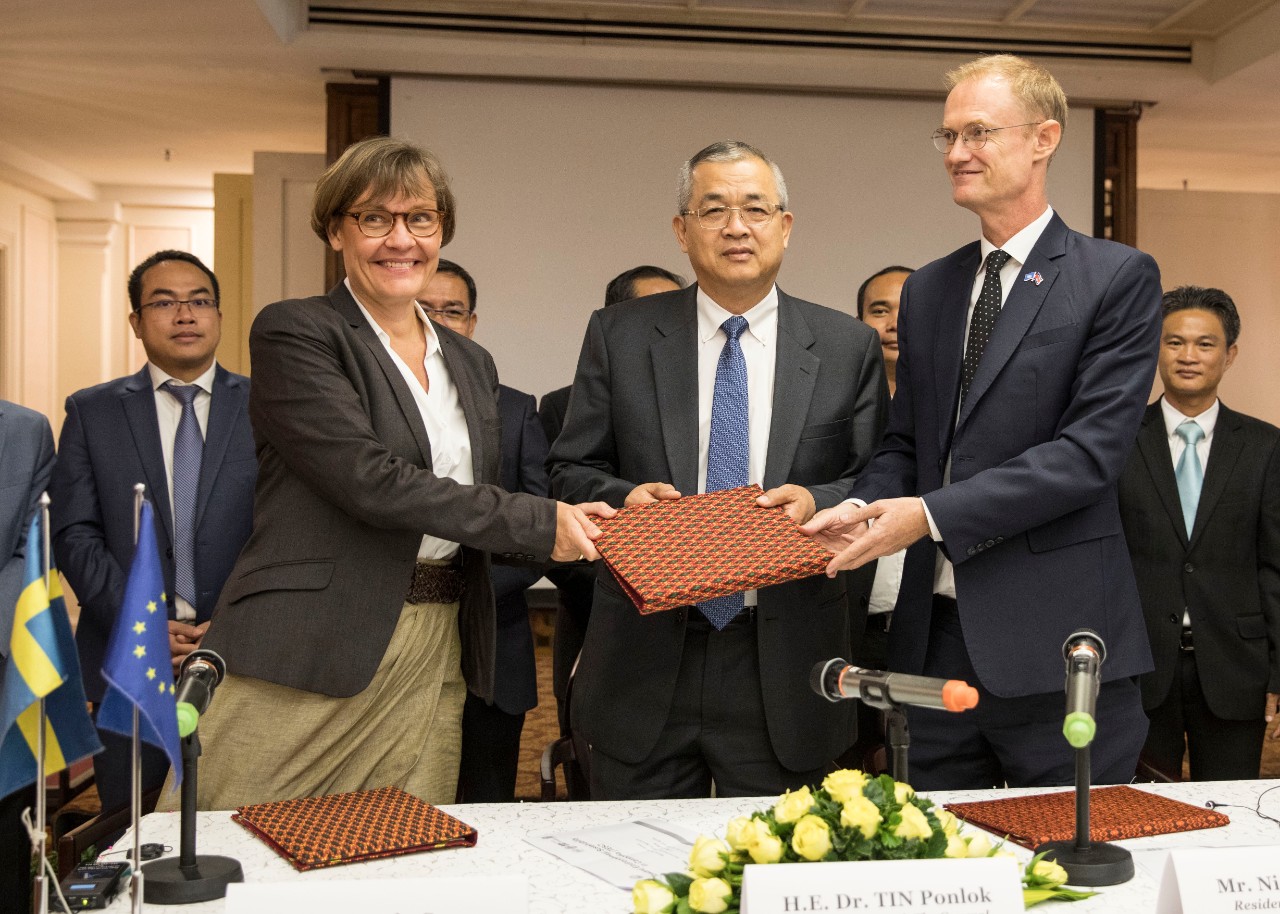
Maria Sargren, the Ambassador of Sweden to Cambodia signed an agreement on sustainable development with the United Nations Development Programme (UNDP) and Cambodia’s government on 11 March 2019.
This agreement approving a two-year project intended to provide solutions to environmental problems regarding to environmental degradation, growing waste and access to affordable clean energy in Cambodia.
Maria Sargren said that the Sweden’s government will continue to assist Cambodia especially in sustainable development.
“The government of Sweden is delighted to support this project as we strive to promote innovative approaches to sustaining natural resources, development of a circular economy and expanding energy access in order to assist Cambodia’s move toward environmental sustainability,” she said.
Tim Ponlok, secretary-general of the National Council for Sustainable Development, addressed the benefit that UNDP will get from this agreement.
“This new project will test and demonstrate innovative approaches to protect natural resources and the environment by reducing waste and providing clean and affordable energy,” Mr Ponlok said.
The main purpose of the project as it was stated on UNDP’s press release was to assist Cambodia to deal with three sets of environmental challenges consisting degradation of natural resources, growing volume of waste and access to affordable and clean energy.
With the challenge on degradation of natural resources, the project will encourage rural communities to engage in sustainable management of resources and find the financial source to protect and preserve vital natural resources.
Moreover, this project will be applied to improve the problems of waste management by introducing the “circular economy” concept, that can “promote new approaches for both producers and consumers to refuse, reduce, reuse and recycle materials, with the aim to minimize environmental impacts, as well as to create new economic opportunities.” UNDP stated.
Finally, with the issue on affordable and clean energy’s access, the project will remove the technical and financial barriers so that people living in remote area can approach reliable and affordable electricity easier.
Nick Beresford, UNDP Resident Representative, also shared “a circular economy, with more solar energy and better protection of natural resources, presents a way for Cambodia to continue rapid progress towards upper middle-income status, but to do so more sustainably and with much better health and social outcomes.”

